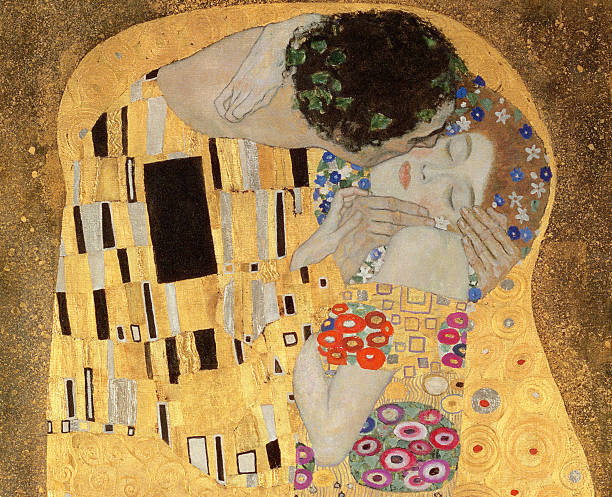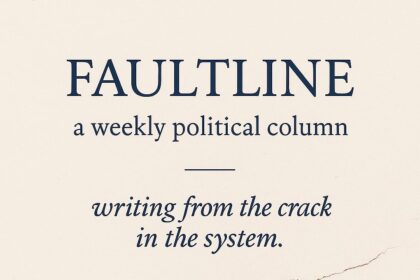Desire, like dissent, was always meant to be unruly—until the market taught us to commodify it. It is the hallmark of every media ever made: love, actually; love in the AM; love for the sake of it. So much so that the very purpose of human existence appears futile unless it is littered with the ruins of an emotion that is less perceived and more romanticised into belief. Almost like God.
The disgrace of an emotion like love is that putting it on a pedestal creates an unwanted butterfly effect, spreading its roots into the architecture of control. Love, in its rawest form, is an ideology. Antithetical to instinct, free of all subversion that does not translate to the blaring signs: cultural mandate, moral performance, and political distraction le classique. It is the most curated lie we willingly participate in.
Love in the modern age demands complicity—to stereotypes, gendered emotional labour, capitalistic propaganda, and above all, monogamy in its most possessive form. To declare your allegiance to one person, therefore, is to reject the prioritisation of community, which is the primary essential of grassroots resistance. Romantic inclinations subdue the anger needed to organise collective efforts, psychosocially transforming the emotional delegations of a person’s brain into lesser, more trivial acts, like unipolar companionship, sexual gratification, and the aloof promises of lifelong loyalty. One wonders where social obstruction could’ve been had the individual been minutely committed to communal affinity half as much as it is to the pointless exchange of chemicals.
It must be clarified that this author is not the cynic she is accused of being. But conventional love—and consequently, romance—demands the fulfilment of the perversions of the Gaze, where we audition for belonging. We hope for partnerships to legitimise our social echelon, not for liberation, but to be seen, to be caught in the mundanity of our manufactured nakedness, and to finally belong to a script someone else understands. This desire to be wanted is the highest depravity of what human nature otherwise possesses the capability of.
The problem with quixotic idealism is that it distorts our perception of what being a radical looks like. By replicating the colonial residue of these so-called “emotions,” we prove ourselves to be spiritually conservative. While we critique the nation-state and its nationalistic bandwagon, we choose to believe in “the one,” resurrecting the same Messiahs we bury in intersectional politics seminars. We claim to be anti-capitalists, yet give in to the perpetuation of our age’s biggest consumption: that of the human sentiment, demanding efficiency in love through optimal roles, clear communication, quantifiable affection alternating as “love languages,” and the expectation of emotional availability without a price.
There is nothing subversive about this.
Love, in its most dominant form, is not the antidote to oppression. Instead, it serves as its most insidious accomplice. From the state’s homogenisation of sex through the nuclear family structure to the isolation of one’s psychic abilities by confiding in the fairy tale of “the one” completing them, it tapers on the careless line between delusion and malice, either of which is equally harmful to the mutiny of the people’s movement meant to act as a necessary stepping stone for structural change.
Worst of all, love is exclusionary. It forces the individual to confront the inevitable aestheticisation of their own self, transferring the ownership of their body to collective morality built upon years of racial and chauvinistic attitudes. By turning community into competition, it teaches us that in order to be loved, we must be chosen. And to be chosen, we must be better than others. How do you dismantle a hierarchy when your very emotional scripts are built on reinforcing it?
Revolution does not need love. In fact, it often dies because of it. Because love teaches you to protect your own first, stay silent for their safety, and compromise for peace. But revolutions are not born in safety. You cannot organise an uprising around the fear of losing what little you have. This fragility, and its subsequent want to be understood through someone else’s viewpoint, demands reducing yourself into a digestible carcass of your aspirations. To become consumable is to contradict the rebellion.
What we need, therefore, is not love. But intimacy without possession, care without control, and most importantly, community without contract. The opportunity to create emotional ethics on the basis of politics and presence, and not inconsequential notions like fantasy or longing. We need love that is untainted by narrative.
Because the revolution will be lonely. And as love threatens to preserve what has been, revolution intends to burn it. It is about time we light the match.












